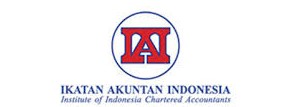Analisis Perbandingan Skeptisisme Profesional Mahasiswa Akuntansi: Studi Kasus Mahasiswa Akuntansi Fakultas Ekonomi Universitas Negeri Padang
Abstract
This study aims to investigate the effectiveness of professional ethical course for accounting students at Faculty of Economic in Padang State University. Based on student participation in Business Ethics and Accounting Profession subject, we measure their Professional Skepticism using six factors who developed by Hurtt (2010) known as Hurtt’s Professional Skepticism Scale (HPSS): Autonomy, Self Esteem, Question Mind, Suspension of Judgement, Search for Knowledge, and Interpersonal Understanding. We compare the skepticism scores of two grouping variables which are: The students who have participated in professional ethical course (Sample 1) and the students who haven’t participated in professional ethical course (Sample 2). The results show that Sample 1 was more skeptical in terms of Self Esteem. On the other hand the difference between the two samples in skepticism score for the other five factors was found insignificant.
References
Agrawal, P., Birt, J., Holub, M., & van Zyl, W. (2021). Professional scepticism and the accounting classroom. Accounting Education, 30(3), 213–233. https://doi.org/10.1080/09639284.2021.1913616
Agustina, R. D. , & P. D. (2019). Pengaruh fraud pentagon dalam mendeteksi kecurangan pelaporan keuangan. Jurnal Ilmiah MEA (Manajemen, Ekonomi, & Akuntansi), 3(1), 44-62.
Alfa, R. D. L. C. , & Indarto, S. L. (2013). Faktor-Faktor Yang Mempengaruhi Skeptisisme Profesional Auditor Dalam Penugasan Audit. Jurnal Akuntansi Bisnis, 11(22), 115-137. In Jurnal Akuntansi Bisnis: Vol. XI (Issue 22).
Attamimi, F. M., & Ridwan, A. (2015). Faktor-faktor yang Mempengaruhi Skeptisisme Profesional Auditor. Jurnal Ilmu & Riset Akuntansi.
Baharuddin, B., & Wahyuni, E. N. (2015). Teori belajar dan pembelajaran. repository.uin-malang.ac.id. http://repository.uin-malang.ac.id/6124/
Berliner, D. C., & Gage, N. L. (1976). Chapter I: The Psychology of Teaching Methods. Teachers College Record, 77(5), 1–20. https://doi.org/10.1177/016146817607700502
Dwinanda, J. (2014). Mempengaruhi Mahasiswa Akuntansi Dalam Pemilihan Karir Menjadi Auditor Pada Instansi Swasta Dan Pemerintah (Studi Empiris Pada Mahasiswa S1 …. Skripsi.
Farag, M. S., & Elias, R. Z. (2016). The relationship between accounting students’ personality, professional skepticism and anticipatory socialization. Accounting Education, 25(2), 124–138. https://doi.org/10.1080/09639284.2015.1118639
Febriana, V., & Aridyanto, M. D. (2012). Faktor-faktor yang mempengaruhi penggantian kantor akuntan publik di perusahaan go public yang terdaftar di BEI. eprints.undip.ac.id. http://eprints.undip.ac.id/35517/
http://iaiglobal.or.id/v03/files/file_publikasi/Kode%20Etik%20Akuntan%20Indonesia%202021%20-%20Website.pdf. “Kode Etik Akuntan Indonesia, Efektif per Desember 2021”. Accessed on date Mei 11, 2022.
Hurtt, R. K. (2010). Development of a scale to measure professional skepticism. Auditing, 29(1), 149–171. https://doi.org/10.2308/aud.2010.29.1.149
Ikbal, M. , & Nurjannah, N. (2016). Meningkatkan Self Esteem dengan menggunakan pendekatan rational emotive behavior therapy pada peserta didik kelas VIII di SMP Muhammadiyah Jati Agung Lampung Selatan tahun pelajaran 2015/2016. KONSELI: Jurnal Bimbingan dan Konseling (E-Journal), 3(1), 73-86. https://ejournal.radenintan.ac.id/index.php/konseli
Ismail, R. N., Mudjiran, & Neviyarni. (2019). Membangun Karakter Melalui Implementasi Teori Belajar Behavioristik Pembelajaran Matematika Berbasis Kecakapan Abad 21. Menara Ilmu, XIII(11).
Jackling, B., Cooper, B. J., Leung, P., & Dellaportas, S. (2017). Professional accounting bodies’ perceptions of ethical issues, causes of ethical failure and ethics education.
Kathy Hurtt, R., Brown-Liburd, H., Earley, C. E., & Krishnamoorthy, G. (2013). Research on auditor professional skepticism: Literature synthesis and opportunities for future research. Auditing, 32(SUPPL.1), 45–97. https://doi.org/10.2308/ajpt-50361
Kwock, B., Ho, R., & James, M. (2016). The effectiveness of professional scepticism training for auditors in China: evidence from a university in China*. China Journal of Accounting Studies, 4(2), 205–224. https://doi.org/10.1080/21697213.2016.1196055
Laily, N., & Anantika, N. R. (2018). Pendidikan Etika dan Perkembangan Moral Mahasiswa Akutansi. Jurnal Ilmiah Akuntansi Dan Bisnis, 11. https://doi.org/10.24843/JIAB.2018.v13.i01.p02
Larimbi, D., & Subroto Rosidi, B. (2013). Ekuitas: Jurnal Ekonomi dan Keuangan Pengaruh Faktor-Faktor Personal Terhadap Skeptisisme Profesional Auditor.
Liu, X. (2018). Can professional skepticism be learned? Evidence from China. Journal of Education for Business, 93(6), 267–275. https://doi.org/10.1080/08832323.2018.1466773
Nelson, M. W. (2009). A model and literature review of professional skepticism in auditing. Auditing, 28(2), 1–34. https://doi.org/10.2308/aud.2009.28.2.1
Nurkholis, N. (2020). Pengaruh Pendidikan, Pelatihan, Dan Pengalaman Terhadap Skeptisisme Profesional Auditor. Ekuitas (Jurnal Ekonomi Dan Keuangan), 4(2), 246–265. https://doi.org/10.24034/j25485024.y2020.v4.i2.4376
Oktarini, K., & Ramantha, W. (2016). Pengaruh Pengalaman Kkerja Kepatuhan terhadap Kode Etik pada Kualitas Audit melalui Skeptisisme Profesional Auditor. E-Jurnal Akuntansi Universitas Udayana. ISSN: 2302-8556. (Vol. 15).
Oswalt, A. (2019). Why self-esteem is important and its dimensions.
Sufi, D. K. (2018). Peranan Panti Asuhan Putri Aisyiyah Kabupaten Aceh Singkil dalam Meningkatkan Kemandirian Anak. Fakultas Ilmu Sosial Dan Ilmu Politik Universitas Muhammadiyah Sumatera Utara. SKRIPSI.
Tuanakotta, T. M. (2013). Audit berbasis ISA (international standards on auditing). Jakarta: Salemba Empat.







.png)
.png)
